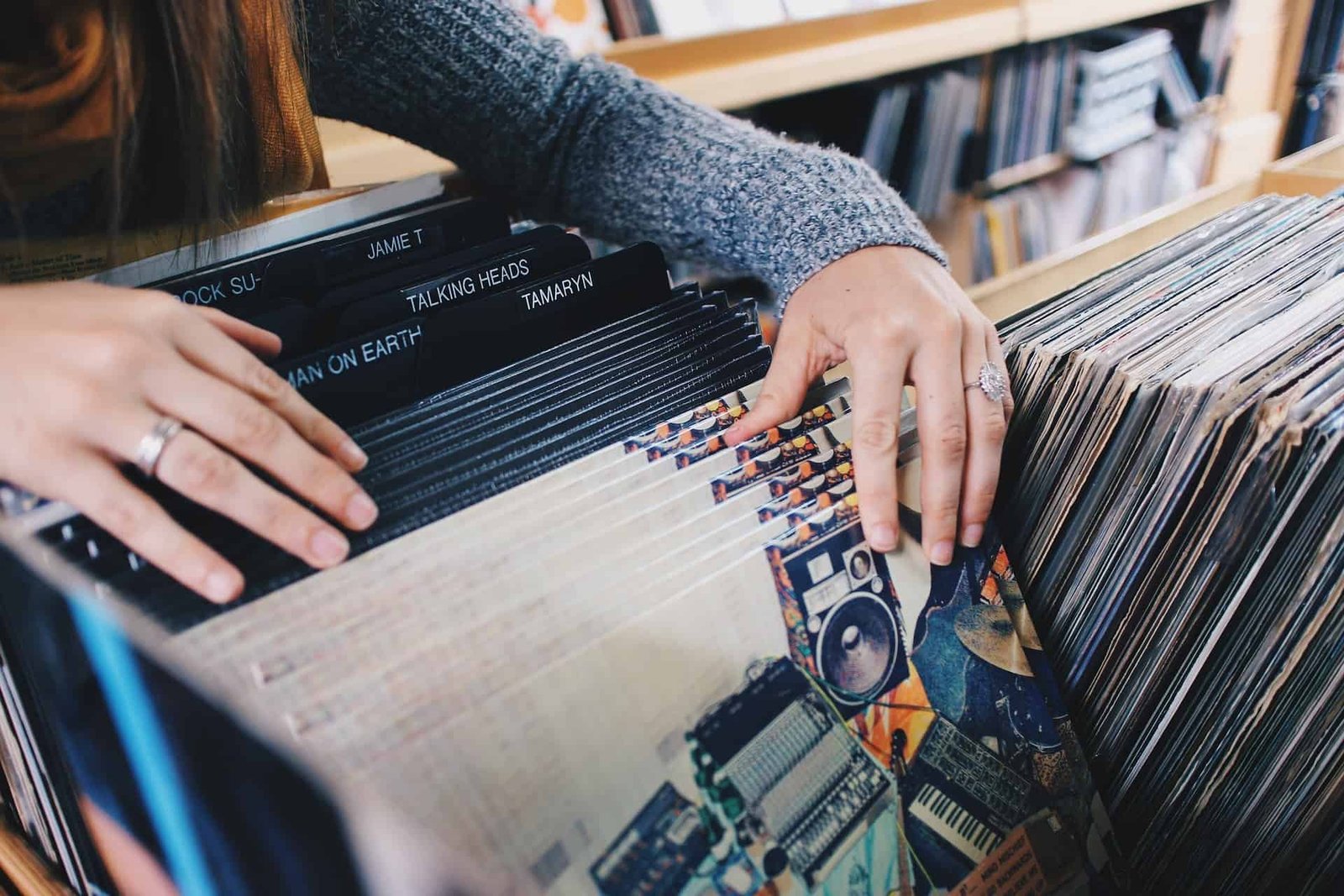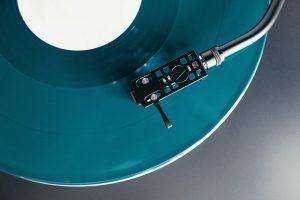You’ve stumbled upon a goldmine of vinyl records, haven’t you? But they’re dirty, dusty, and in desperate need of a spa day. Don’t worry, you’re in the right place.
This guide will show you how to clean your records with good old soap and water. So, roll up your sleeves and let’s breathe some new life into your vinyl collection.
With a bit of care, you’ll have them spinning and sounding as good as new in no time.
Key Takeaways
- Prior to cleaning, wash your fingers to avoid adding more fingerprints.
- Washing the vinyl may make it look messy, but it is good for the record.
- The record will have a pleasant smell after cleaning.
- Seek professional assistance if the damage is extensive.
Benefits of Regular Record Cleaning
Regular cleaning of your vinyl records offers numerous benefits that you’ll appreciate as a music enthusiast. Most notably, it extends record longevity. Dust and dirt removal not only preserves the artwork and labels but also reduces surface noise, thereby enhancing the playback experience. By removing these particles, you can protect the grooves on the record from damage, ensuring the vinyl continues to produce its iconic sound for years to come.
Additionally, clean records result in improved sound quality. A clean record presents the music as the artist intended, free from the crackles and pops that dust and dirt can cause. In essence, regular and meticulous cleaning of your vinyl records becomes a vital step in the preservation and enjoyment of your music collection.
The Right Way to Wash Records
When you’re ready to dive into cleaning your vinyl records, it’s crucial you get it right to avoid damaging your beloved collection. Always remember the importance of cleaning both sides of the record. You can use a record cleaning machine or try DIY record cleaning solutions.
If you’re dealing with vintage vinyl records, be extra gentle during the process. After washing, carefully dry using appropriate drying methods to prevent water damage.
Have a look at this table for an easy reference:
| Step | Tools | Instructions |
|---|---|---|
| 1 | Record Cleaning Machine | A good investment for maintaining your collection. |
| 2 | DIY Cleaning Solutions | Mix distilled water and a drop of dish soap. |
| 3 | Cleaning Vintage Records | Use a soft, lint-free cloth. |
| 4 | Drying | Air dry or use a microfiber cloth. |
| 5 | Both Sides | Don’t forget to clean the flip side too. |
Vacuuming for Deep Cleaning
After giving your records a good wash, you’ll want to consider vacuuming for an even deeper clean. The vacuuming technique involves using a specialized record cleaning machine that not only removes dust and dirt but also helps in removing static electricity, which can cause a lot of noise during playback.
If a record cleaning machine isn’t within your budget, you can still achieve a similar effect by applying a DIY record cleaning solution, and using cleaning brushes to gently scrub the grooves of the records. This can help dislodge any stubborn particles.
Proper Vinyl Record Storage
Once you’ve cleaned your vinyl records meticulously, it’s crucial you store them correctly to maintain their improved sound quality and cleanliness. Here are three vinyl record cleaning tips to help you in storing vinyl records correctly:
- Use Record Sleeves: The importance of record sleeves can’t be overstated. They protect your records from dust and dirt buildup. Ensure your records are always kept in their sleeves when not in use.
- Store Vertically: To prevent warping, store your records vertically, not stacked. Stacking puts pressure on the records causing them to warp over time.
- Keep Away from Heat: Heat can warp vinyl records. Store them in a cool, dry place away from direct sunlight or heaters.
Risks of Tap Water and Soap
In your quest to keep your vinyl records spotless, it’s crucial to understand the potential risks of using soap and tap water. The primary concern is the potential residue and damage, which could negatively impact the sound quality of your records.
| Risks | Description |
|---|---|
| Residue | Soap may leave a film or residue on the records, which can affect playback. |
| Damage | Tap water, especially hard water, contains minerals that can potentially scratch or damage the vinyl surface. |
Choosing the wrong type of soap could exacerbate these risks. Some soaps contain harsh chemicals that can deteriorate the vinyl over time. Always opt for gentle, unscented soaps. Moreover, consider using distilled water instead of tap water to minimize the risk of mineral deposits.
Frequently Asked Questions
What Other Household Items Can Be Used to Clean Vinyl Records Apart From Soap and Water?
You can employ various household items to clean vinyl records. Try distilled vinegar, wood glue method, toothpaste cleaning, baking soda solution, or even the rice paper technique. Each option provides unique cleaning properties.
How Does the Cleaning Process Affect the Sound Quality of the Vinyl Record?
You’ll notice sound enhancement post-cleaning, as dirt removal increases record lifespan. Cleaning frequency is crucial; consider soap alternatives for gentler options. Proper drying methods prevent warping. Clean records yield superior sound, enhancing your listening experience.
Is It Recommended to Use Warm or Cold Water When Washing Vinyl Records With Soap and Water?
You should use warm water when washing vinyl records. It helps loosen dirt without damaging the record. Choose mild soap, rinse thoroughly, and dry carefully to prevent water temperature effects and ensure record damage prevention.
How Often Should a Vinyl Record Be Cleaned to Maintain Its Quality?
You should clean your vinyl records after every few uses to maintain their quality. Regular cleaning extends the record’s lifespan, preserves the vinyl, and enhances the overall audio experience. Proper record care is crucial.
What Precautions Should Be Taken When Drying the Vinyl Record After Cleaning?
You should always air dry your records, avoiding high humidity which can warp them. Handle gently to avoid scratches. Material safety’s paramount, never use heat or abrasive materials. Proper drying techniques ensure your vinyl’s longevity.
Conclusion
In conclusion, regular cleaning and proper storage of your vinyl records can significantly enhance their longevity and sound quality.
While soap and tap water can be handy, extreme caution is necessary to avoid damage.
Using distilled water and vacuuming for deep cleaning can be more effective.
Ultimately, your love for vinyl, combined with a meticulous cleaning routine, can keep your collection in top-notch condition promising you an unmatched listening experience for years to come.








